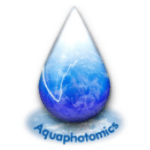
Group leader: Dr. Lashya Manage
Affiliation: Department of Zoology and Environmental Management, Faculty of Science, University of Kelaniya, Sri Lanka
Research Topics: Monitoring water quality in different environmental aspects, characterization of hazardous waste, environmental pollutions, Environmental toxicology, Comprehend soil characteristics and functionalities.
Contact: lashyamanage77@gmail.com, primali@kln.ac.lk
Description:
Our research group is currently immersed in several vital research areas:
- Water Quality Monitoring: We are actively involved in monitoring the quality of water resources, both surface and underground. This includes assessing various parameters to ensure water safety and sustainability.
- Analysis of Hazardous Environmental Pollutants: We are dedicated to identifying, analyzing, and mitigating hazardous environmental pollutants, safeguarding both natural ecosystems and human health.
- Soil Degradation and Water Table Depletion: We are committed to studying the impact of diverse factors on soil degradation and the depletion of water tables. Our aim is to develop strategies for sustainable land use and water resource management.
- Biological Characteristics Assessment: We conduct comprehensive research on the biological characteristics of animals, fish, and insects throughout their growth cycles. This encompasses evaluating the influence of environmental and human-induced factors on these populations.
- Waste Byproducts and Bio-Product Innovation: Our research also focuses on finding solutions for different waste byproducts. Simultaneously, we seek to innovate new bio-products that are not only economically profitable but also environmentally friendly.
- With the integration of Aquaphotomics into our research framework, we anticipate a significant expansion in our research horizons. This integration will bring a fresh perspective to our methodologies, data analysis techniques, and the interpretation of our research results. We believe that Aquaphotomics will be a valuable addition to our research toolkit, allowing us to gain deeper insights and enhance the impact of our work in these crucial areas.
- We are excited about the potential that Aquaphotomics offers and look forward to the valuable contributions it can make to our ongoing research endeavors.
Aquaphotomics work:
My pioneering journey with Aquaphotomics began in August 2022 when I joined the Aquaphotomics research group as a Post-Doctoral Researcher at Kobe University in Japan. Together with the Aquaphotomics research team, we embarked on introducing Aquaphotomics and NIR spectroscopy as highly efficient and practical tools for comprehending soil characteristics and functionalities in both on-site and in-situ settings.
Our collaborative efforts extended to conducting a diverse range of experiments at the Yunosato lab. One of our key focuses was the monitoring of Yunosato mineral waters over time to meticulously assess the consistency and variances in their water characteristics. In addition, we delved into the evaluation of various water sample types, including N power, zero power, extracted bio-functional water, and treated sewage water. Our goal was to gain a deeper understanding of their unique water characteristics and functionalities, utilizing the power of Aquaphotomics.
Furthermore, we initiated a comprehensive study of soil-plant responses, precisely tracking and evaluating their interactions and compatibility throughout different stages of plant growth. Collaborating closely with the research team, we set out to assess soil-tested parameters using Aquaphotomics, referencing the values obtained from the Photo-nutrient analyzer.
With the strong support of the Aquaphotomics team and upcoming research collaborations with the Department of Agrobioscience at Kobe University, our future research endeavors are poised to explore Aquaphotomics as a groundbreaking and holistic approach for the investigation of soil properties and functions. Our ultimate aim is to contribute to the development of a soil aquaphotome, further enhancing our understanding of the intricate world beneath our feet.
Currently, we function as a dedicated research team affiliated with the Department of Zoology and Environmental Management within the Faculty of Science at the University of Kelaniya. Our extensive knowledge and substantial contributions to Aquaphotomics and other environmental research conducted in Japan are expected to bring immense value to our future research initiatives within the department.
